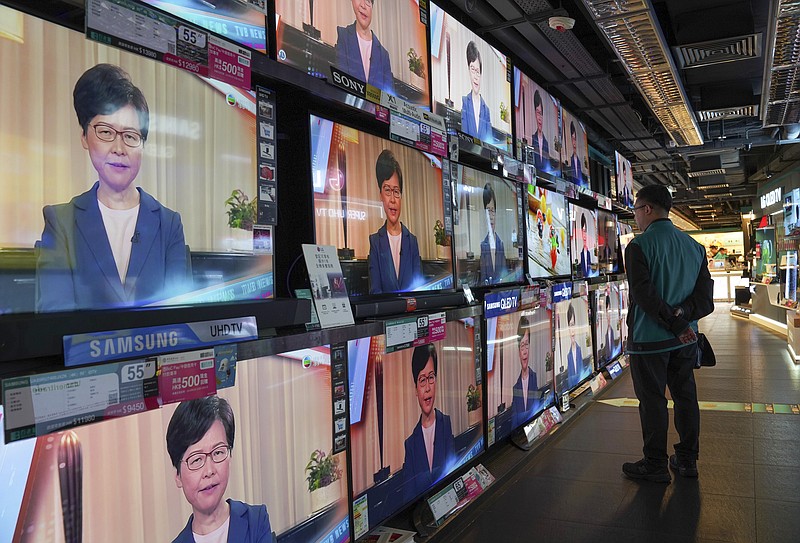HONG KONG (AP) - Hong Kong Chief Executive Carrie Lam announced Wednesday the withdrawal of an extradition bill that sparked months of demonstrations, bowing to one of the protesters' demands in the hope of ending the increasingly violent unrest.
However, activists rejected the decision as insufficient and vowed not to yield until the government accepts other demands including an independent investigation into alleged police brutality against protesters, the unconditional release of those detained and greater democracy.
The bill would have allowed Hong Kong residents to be sent to mainland China for trials. It has prompted massive protests since June that disrupted transport links and caused the airport to shut down earlier this month.
Lam said the government would not accept other demands, and instead named two new members to a police watchdog agency investigating police misconduct.
"The government will formally withdraw the bill in order to fully allay public concerns," she said in a recorded television message.
Lam said the persistent violence is damaging the rule of law and that challenges to the "one country, two systems" framework under which the former British colony returned to Chinese control in 1997 had put Hong Kong in a "highly vulnerable and dangerous situation."
"Our foremost priority now is to end violence, to safeguard the rule of law and to restore order and safety in society," she added, vowing to "strictly enforce the law against all violent and illegal acts."
Lam said it was clear public frustration has gone far beyond the bill and that her government will seek a dialogue with aggrieved groups to address their discontent. She said she will also invite community leaders, professionals and academics to examine and advise the government on how to resolve deep-seated problems in the society.
"Let's replace conflicts with conversations, and let's look for solutions," she said.
Some lawmakers and activists said the move was too little, too late.
A youth activist who identified herself only as Chan and wore a helmet and scarf to shield her identity told a news conference that protesters "would not back down, not even one step" until their other demands are met.
"If Carrie Lam had withdrawn the bill two months ago, that would have been a quick fix but to apply a bandage onto rotten flesh, that simply won't cut it," she said.
Prominent youth activist Joshua Wong said the government in Beijing hopes to cool down the protests ahead of the country's National Day on Oct. 1.
"I hope the people in China can understand that democracy, freedom and human rights are universal values that Hong Kong people are fighting for," he told journalists before a forum in Taipei, Taiwan, where he is visiting.
"We will continue to fight for it. I hope there is one day that Hong Kong and even China would become a place where people can enjoy democracy and freedom."

